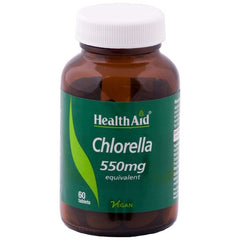Lactose is a sugar found in milk which requires a special enzyme in our body called lactase. Unfortunately, many individuals are deficient in this enzyme and as a result they develop lactose intolerance with various unpleasant symptoms such as bloating, gas, indigestion, etc.

It’s estimated that over 70% of the world’s population does not produce the lactase enzyme and is lactose intolerant. Highest rates of lactose intolerance are found among people of African and Asian origin (60-100%). Only white Europeans seem to tolerate lactose quite well.

Obviously, the simplest solution to the problem is avoiding any products containing lactose (milk, dairy, cakes, yogurts, cheese, and other popular foods) but for many people it is very difficult as they enjoy these foods too much to be able to give up on them completely.
Fortunately, there are certain mentioned below supplements which may be effective or beneficial in trying to solve or reduce the problem of lactose intolerance:
First of all, in order to effectively deal with lactose intolerance while still enjoying dairy products you need to take care of your colon and increase probiotic bacteria dwelling there by taking chlorella on a regular basis as it is the best food for the beneficial bacteria. Find out more about amazing health benefits of Chlorella
You also must take a good quality supplements which contain strains of probiotic bacteria that are able to generate lactase to handle lactose from dairy. The following strains are proved to be able to do the trick:
Lactobacillus acidophilus, Bifidobacterium lactis, Lactobacillus reuteri, Lactobacillus bulgaricus, and Streptococcus thermophilus.
All of them are known to produce lactase and help relieve or eliminate symptoms of lactose intolerance and allow you to digest milk and other dairy products. The more of these strains you add to your daily diet the better should be the results but keep in mind that they must be live and from reliable source as some time ago in America experts decided to test many popular probiotic supplements and yogurts and discovered that shocking 70% of them didn’t contain live bacteria!
Infection of the intestine caused by Giardia lambia can lead to lactose intolerance and probiotics have been successfully used to restore the activity of lactase in children who experienced this infection.
The following excellent quality HealthAid probiotic formulas contain some of the above mentioned strains and therefore are very beneficial in coping with lactose intolerance (click on the image if you want to see the ingredients):
 |
 |
 |
Also Digestive Enzymes, are absolutely crucial for proper digestion and the unlocking of nutrients which preserve our life. Our body depends on countless enzymes which control thousands of biochemical reactions that keep us alive, vibrant and healthy. They promote proper digestion and absorption of nutrients and help to regulate body weight and metabolism. Digestive enzymes are also essential for the elimination of waste products and toxins.
Unfortunately, most enzymes normally found in fresh and raw plant foods are mostly destroyed by heating. But even with the healthiest, unrefined and rich in nutrients diet, if our body has trouble breaking down and absorbing nutrients, due to lack of its own enzymes, we really can’t reap the benefits.
Deficiency of digestive enzymes such as Lactase (required to digest Lactose from milk and dairy products) and also insufficient production of stomach acid (HCl) may lead to malabsorption of nutrients and numerous health conditions including constipation, bloating, abdominal pain, nausea, heartburn, skin problems, tiredness, fatigue, underweight, overweight, allergies or food intolerances.
Addition of Lactase enzyme in Digeston Plus may bring relief to people suffering from lactose intolerance, which is another very common problem. It is caused by the deficiency of lactase which is required to digest lactose (sugar) from milk. As a result lactose can’t be fully digested whenever dairy products are consumed and it leads to various unpleasant symptoms such as bloating, gas, wind, cramps, nausea and diarrhoea.
The HealthAid Digeston Plus is also fortified with a superior blend of 600 million viable bacterial strains of Lactobacillus (Lactobacillus acidophilus is a strain of bacteria that can digest lactose) and Bifidobacterium one of the most important types of friendly bacteria found in the digestive tract, colonizing mainly the large intestine and colon. Bifidobacteria are considered extremely important to the health of the gastrointestinal tract. They may play a vital role in aiding absorption of nutrients, strengthening the immune function, fighting Candida, preventing flu and colds, and eliminating various intestinal problems including wind, gas, bloating, diarrhoea or constipation.
Last but not least, the formulation also contains Chloride in the form of calcium chloride that is proved to contribute to healthy digestion by improving secretion of hydrochloric acid in the stomach.
Related Articles
- Digestive Enzymes with Probiotics For Digestive Problems | HealthAid
- Should I Take Probiotics on an Empty Stomach, Between Meals or With Meals? | HealthAid
References
- J. Li, W. Zhang, C. Wang, Q. Yu, R. Dai, X. Pei, Lactococcus Lactis Expressing Food-grade β-galatosidase Alleviates Lactose Intolerance Symptoms in Post-weaning Balb/c Mice. Applied Microbiology and Biotechnology 2012DOIs00253-012-3977-4.
- T. He, M. G. Priebe, R. J. Vonk, G. W. Welling, Identification of Bacteria with β-galactosidase Activity in Faeces from Lactas Non-Persistent Subjects. FEMS Microbiology Ecology 2005543463469
- Hiele M, Ghoos Y, Rutgeerts P, Vantrappen G, Carchon H, Eggermont E. 13CO2 Breath Test Using Naturally 13C-Enriched Lactose for Detection of Lactase Deficiency in Patients with Gastrointestinal Symptoms. Journal of Laboratory and Clinical Medicine 1988;122(2) 193-200.
- Sepová. H. Kinová, A. Bilková, M. Bukovský, Lactobacilli and their Probiotic Properties. Ceska Slov Farm. 20085729598
- Masood MI, Qadir MI, Shirazi JH, Khan IU.Beneficical Effects on Lactic Acid Bacteria on Human Beings. Critical Reviews in Microbiology 20113719198
- M. G. Priebe, R. J. Vonk, X. Sun, T. He, H. J. M. Harmsen, G. W. Welling, The Physiology of Colonic Metabolism. Possibilities for Interventions with Pre- and Probiotics. European Journal of Nutrition 2002s1) 2-10.
- R. Muñoz-Tamayo, B. Laroche, E. Walter, J. Doré, S. H. Duncan, H. J. Flint, M. Leclerc, Kinetic Modelling of Lactate Utilization and Butyrate Production by Key Human Colonic Bacterial Species. FEMS Mircobiology Ecology 2011763615624
- H. J. Flint, E. A. Bayer, M. T. Rincon, R. Lamed, White, Polysaccharide Utilization by Gut Bacteria: Potential for New Insights from Genomic Analysis. Nature Reviews Microbiology. 20086212131
- Almeida CC, Lorena SLS, Pavan CR, Akasaka HMI, Mesquita MA.Beneficial Effects on Long-Term Consumption of a Probiotic Combination of Lactobacillus casei Shirota and Bifidobacterium breve Yakult May Persist After Suspension of Therapy in Lactose-Intolerant Patients. Nutrition in Clinical Practice 2012272247251
- S. Rabot, J. Rafter, G. T. Rijkers, B. Watzl, J. Antoine-M, Guidance for Substantiating the Evidence for Beneficial Effects of Probiotics: Impact of Probiotics on Digestive System Metabolism. Journal of Nutrition 2010677S EOF89S EOF
- Saltzman JR, Russell RM, Golner B, Barakat S, Dallal GE, Goldin BR. A Randomized Trial of Lactobacillus acidophilus BG2FO4 to Treat Lactose Intolerance. The American Journal of Clinical Nutrition. 1999;69(1) 140-146.
- Kim HS, Gilliland SE.Lactobacillus acidophilus as a Dietary Adjunct for Milk to Aid Lactose Digestion in Humans. Journal of Dairy Science 198366959
- Park MJ, Lee JH, Kim KA, Kim JS, Jung HC, Song IS, Kim CY.The Changes in the Breath Hydrogen Concentration After the Ingestion of Bifidobacterium breve KY-16 in the Lactose Malabsorbers. The Korean Journal of Gastroenterology. 1999346741748
- K. M. Levri, K. Ketvertis, M. Deramo, J. H. Merenstein, F. D’amico, Do Probiotics Reduce Adult Lactose Intolerance? The Journal of Family Practice. 200554613
- Shaukat A, Levitt MD, Taylor BC, MacDonald R, Shamliyan TA, Kane RL, Wilt TJ. Systematic Review: Effective Management Strategies for Lactose Intolerance. Annals of Internal Medicine. 2010;152(12) 797-803.
- Diarrhea vector created by macrovector - www.freepik.com
- Lactose photo created by wayhomestudio - www.freepik.com
Any information or product suggested on this website is not intended to diagnose, treat, cure or prevent any medical condition. Never disregard medical advice or delay in seeking it because of something you have read on this website. Consult your primary healthcare physician before using any supplements or making any changes to your regime.







